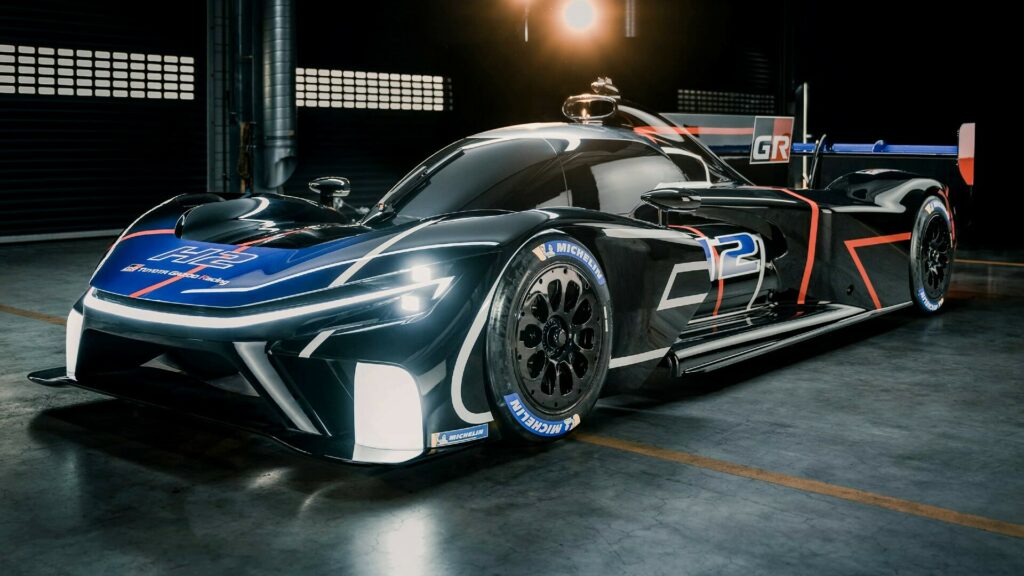The GR LH2 Racing Concept features a hybrid system and shares components with the GR010 Hybrid racecar

- Toyota GR LH2 Racing Concept uses a hydrogen engine paired with a hybrid system.
- The concept is based on the GR010 Hybrid that races at the 24 Hours of Le Mans.
- GR LH2 follows 2023’s GR H2 concept to explore hydrogen’s role in endurance racing.
Hydrogen might still be finding its footing in the automotive world, but Toyota is pushing ahead like it’s already the next big thing. Leaning into its long-running commitment to alternative fuels, Toyota Gazoo Racing continues its work on hydrogen-fueled vehicles with the debut of a striking new racecar.
The GR LH2 Racing Concept made its first appearance at the Circuit de la Sarthe in Le Mans, showing off a more aggressive look and a hybrid powertrain running on hydrogen.
More: One Man Got A New Porsche Hypercar No One Else Ever Will
The GR LH2 is a follow-up to last year’s GR H2 Concept. It carries over some key elements but comes with fresh bodywork and a new white-and-blue livery. Up front, the LEDs are smaller and more focused, while the reworked side intakes, larger fin, and taller rear wing all contribute to a bolder profile. The greenhouse appears unchanged and closely resembles that of the GR010 Hybrid racecar.
The new concept measures 5,100 mm (200.8 inches) long and 2,050 mm (80.7 inches) wide, figures identical to its predecessor and slightly bigger compared to the GR010 Hybrid racecar it is based on.
Powertrain and Hydrogen Strategy
Toyota hasn’t provided full powertrain specs yet but confirmed that the GR LH2 uses a hydrogen engine paired with a hybrid system. It could share some similarities with the GR010 Hybrid, which features a mid-mounted twin-turbo 3.5-liter V6 and a front-mounted electric motor. That setup has already proven its mettle in endurance racing, and adapting it for hydrogen adds another layer to Toyota’s multi-pathway strategy.


That strategy includes a mix of hybrids, battery-electric vehicles, carbon-neutral fuels, and hydrogen as parallel routes to a carbon-neutral future. It’s a bet that spreading risk across multiple technologies is smarter than going all-in on just one.
More: Toyota Just Confirmed The Supra’s Fate But Left Out The Juiciest Part
Beyond the Mirai and Crown Sedan, both of which use FCEV powertrains, Toyota is leveraging motorsports as a testing ground for hydrogen combustion technology. In recent years, the company has been running a hydrogen-powered GR Corolla in endurance races to refine performance and reliability. At the same time, Toyota is collaborating with partners to scale up hydrogen production and distribution infrastructure, a crucial step if the fuel is going to have any real future.
Back at the 24 Hours of Le Mans, Toyota is marking 40 years since its first entry in the iconic race. This year, two GR010 Hybrid racecars will line up in familiar red/white and black liveries, chasing a return to dominance. Toyota held the top step of the podium for five straight years from 2018 to 2022, but Ferrari claimed victory in both 2023 and 2024. The 2025 winner will be crowned on Sunday, June 15.
Toyota Gazoo Racing

#Toyotas #Wild #Hypercar #Racing #Concept #Crashed #Mans #Party


